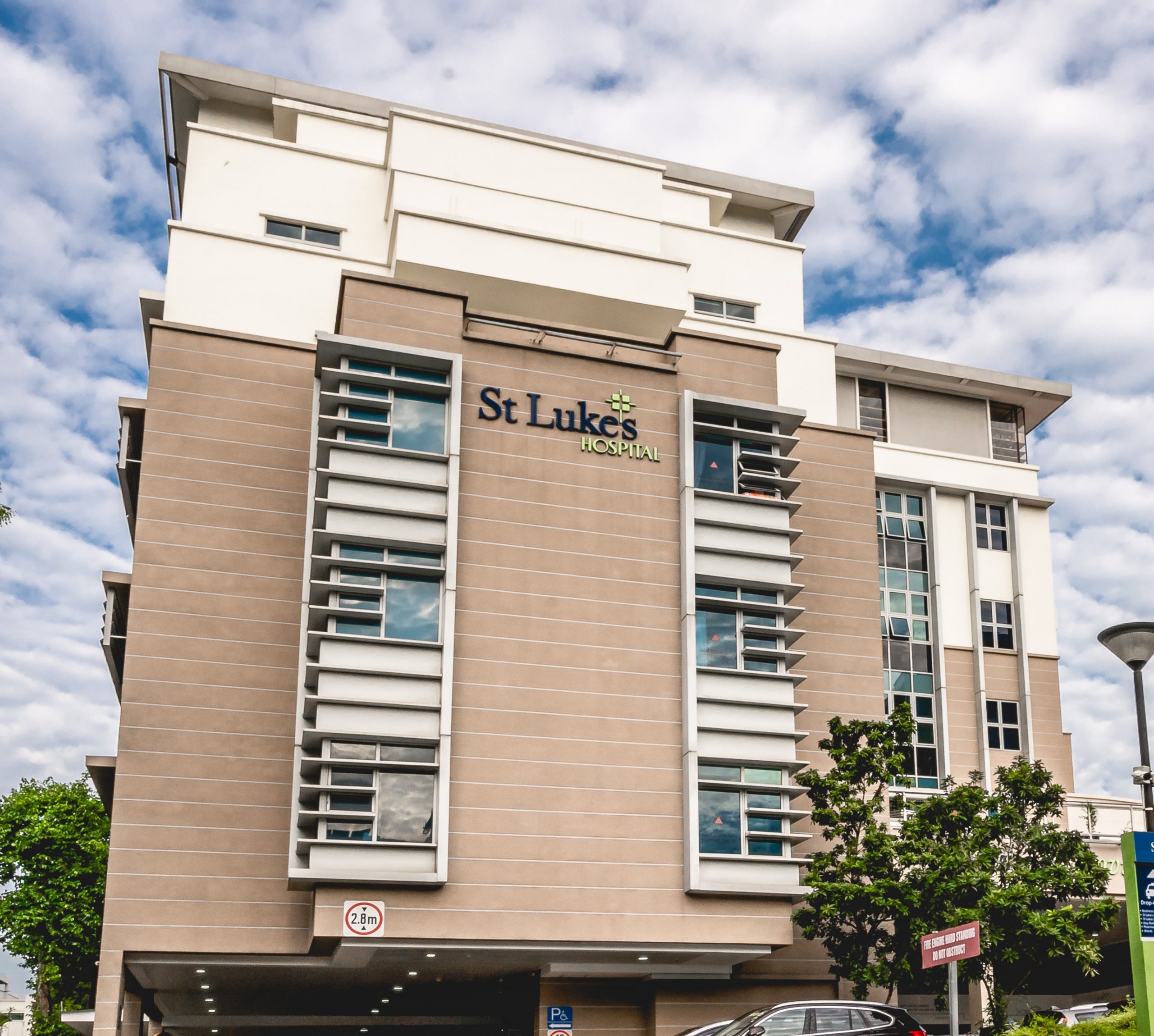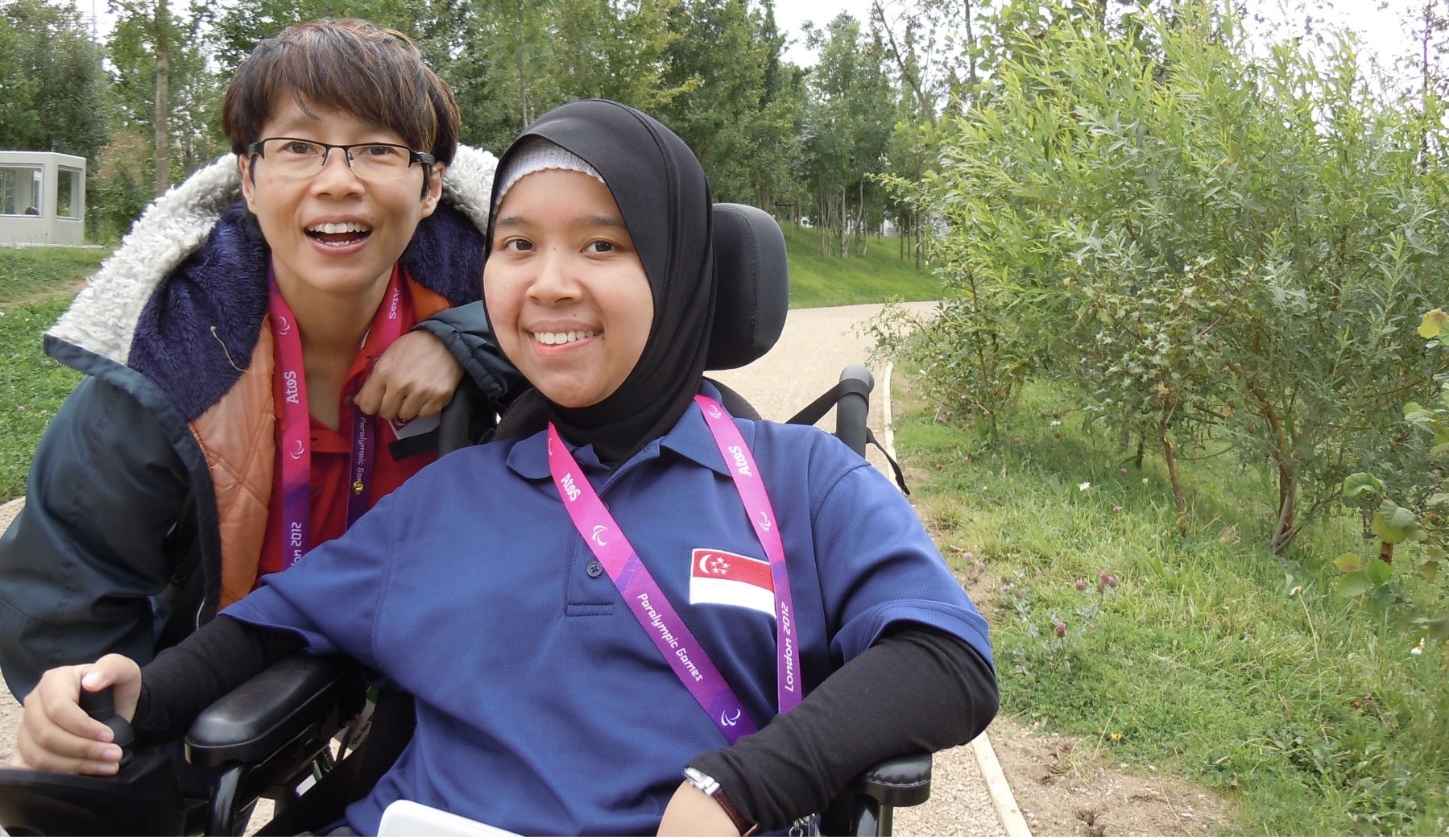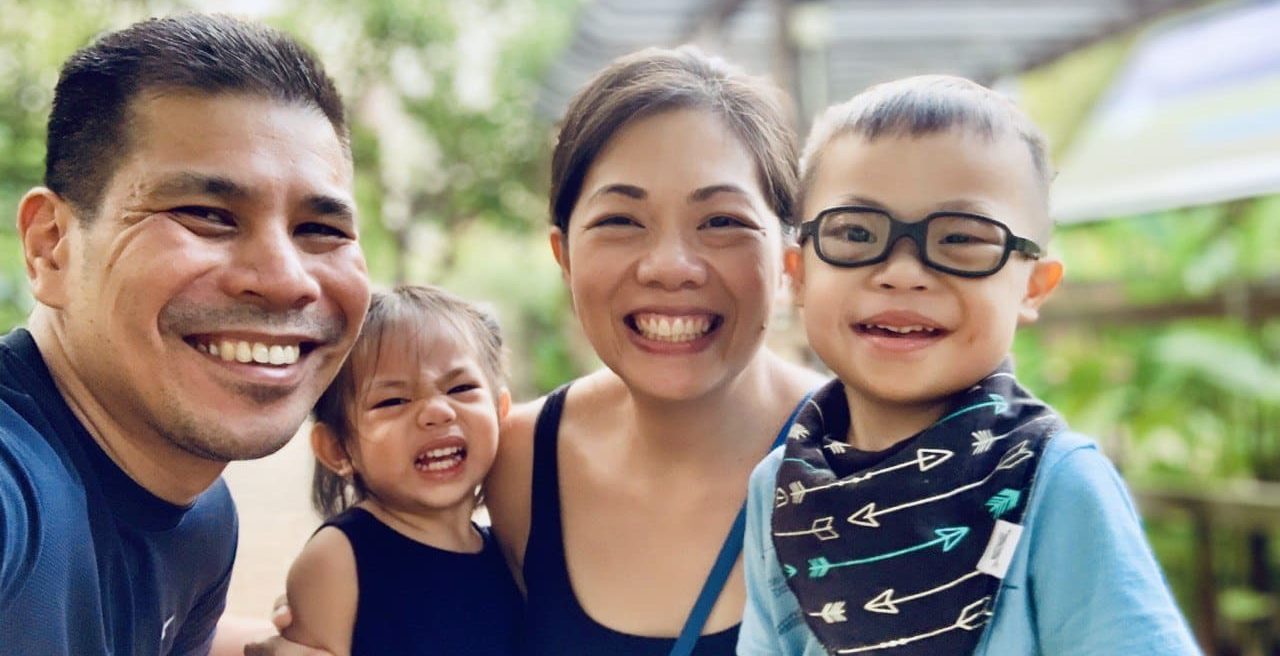“Giving in a relational way changes both givers and receivers”: NVPC’s Melissa Kwee
St Luke's Hospital // April 25, 2022, 2:43 pm
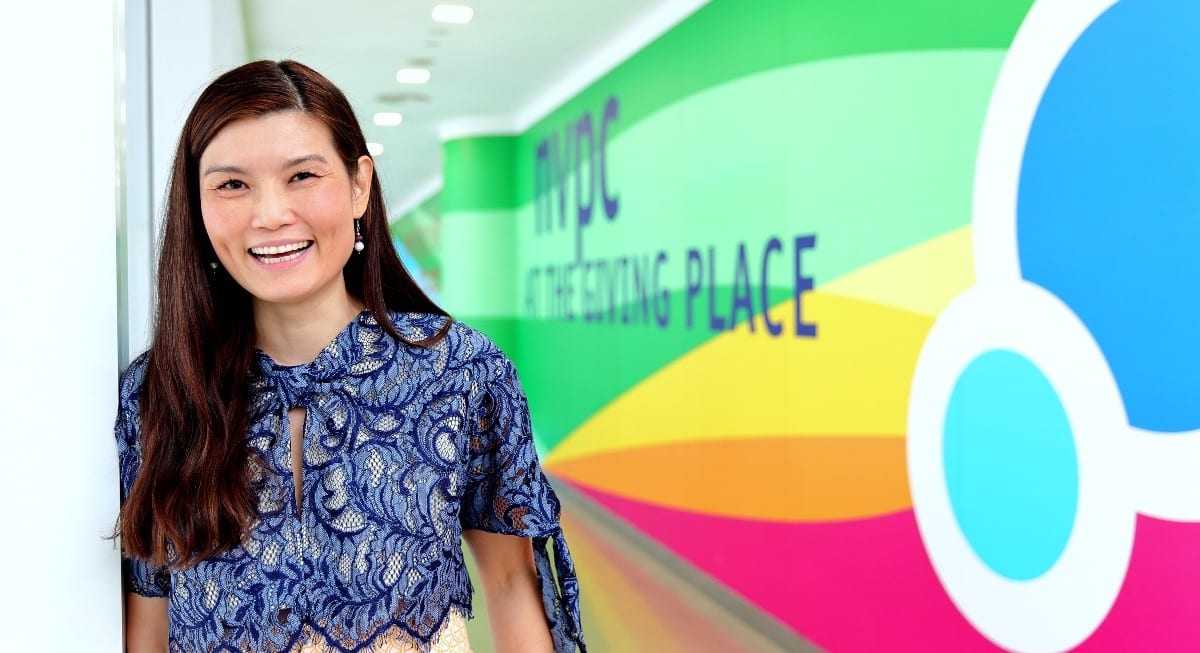
"What commitment can I – or we collectively – make to those we are concerned about?" asks Melissa Kwee, CEO of National Volunteer and Philanthropy Centre. Photo from cityofgood.sg.
As Covid-19 unfolded in early 2020, Melissa Kwee saw that the information disseminated on the coronavirus was mainly in languages local to Singapore.
“There was nothing in Bengali and languages that the migrant workers spoke,” she recalled.
She knew she had to act fast.
The CEO of National Volunteer and Philanthropy Centre (NVPC) connected with authorities to discuss the urgent need to translate the information.
However, the fast-spreading virus soon hit the dormitories and tens of thousands of migrant workers tested positive for the virus.
“As leaders, our job is to remind people and ourselves that we do have the agency to make changes.”
“I felt so upset and overwhelmed,” recounted Melissa.
“When I saw what I knew was going to happen, happening, I blamed myself for somehow not trying harder.”
She was in tears, but at that moment, she received a call from a sister-in-Christ whom she did not know very well.
The timely call gave Melissa the space to pour out her grief, and receive prayer. It restored some sense of calmness.
Still needing an outlet for her frustration, Melissa went for a run at MacRitchie Reservoir, crying most of the way.
Then her phone suddenly started reading out from her Bible app. It read the famous words of Jesus on the cross: “My God, my God, why have you forsaken me?”
Appearing in her mind’s eye was the face of a migrant worker.
“And I remembered Jesus telling us, ‘Whatever we do unto the least of my brethren, you do unto me’. (Matthew 25:40)
“The Bible has already told us how to treat the foreigners, the widows, the poor and the orphans amongst us. I felt so convicted.”
“All of us are part of the problem – but also part of the solution.”
Her phone continued to read out Psalm 23.
“Upon hearing about the comfort and provision of the Lord, I was somehow assured that through this dark valley, His will and way would prevail. And despite ‘no resources and no direction’, somehow He would provide.
“And He did,” said Melissa.
This incident sparked off what Melissa would describe as a series of stages that she would go through “on repeat” while navigating the pandemic.
She dubs this framework as her “4Rs+1”: Revelation, Responsibility, Reimagination and Reset + Repentance.
For the community, it is a useful tool for navigating crisis together.
1. Revelation: What can you now not un-see?
“Covid shook everything that could be shaken.
“It was also quite obvious that the last, least and lost amongst us have been hit the most and the hardest,” said Melissa.
At the same time, Melissa saw the pandemic reveal the genuine care that people in Singapore had for one another. Many shared their resources – such as masks, food, laptops and phones – and even their skills and talents through the likes of free concerts.
Donations through Giving.sg spiked to over a million dollars, days after the solidarity budget payout to citizens. It had appealed to Singaporeans to consider giving this payout to those less fortunate than themselves.
Giving.sg is a one-stop national giving platform to donate, volunteer and fundraise for registered non-profits in Singapore.
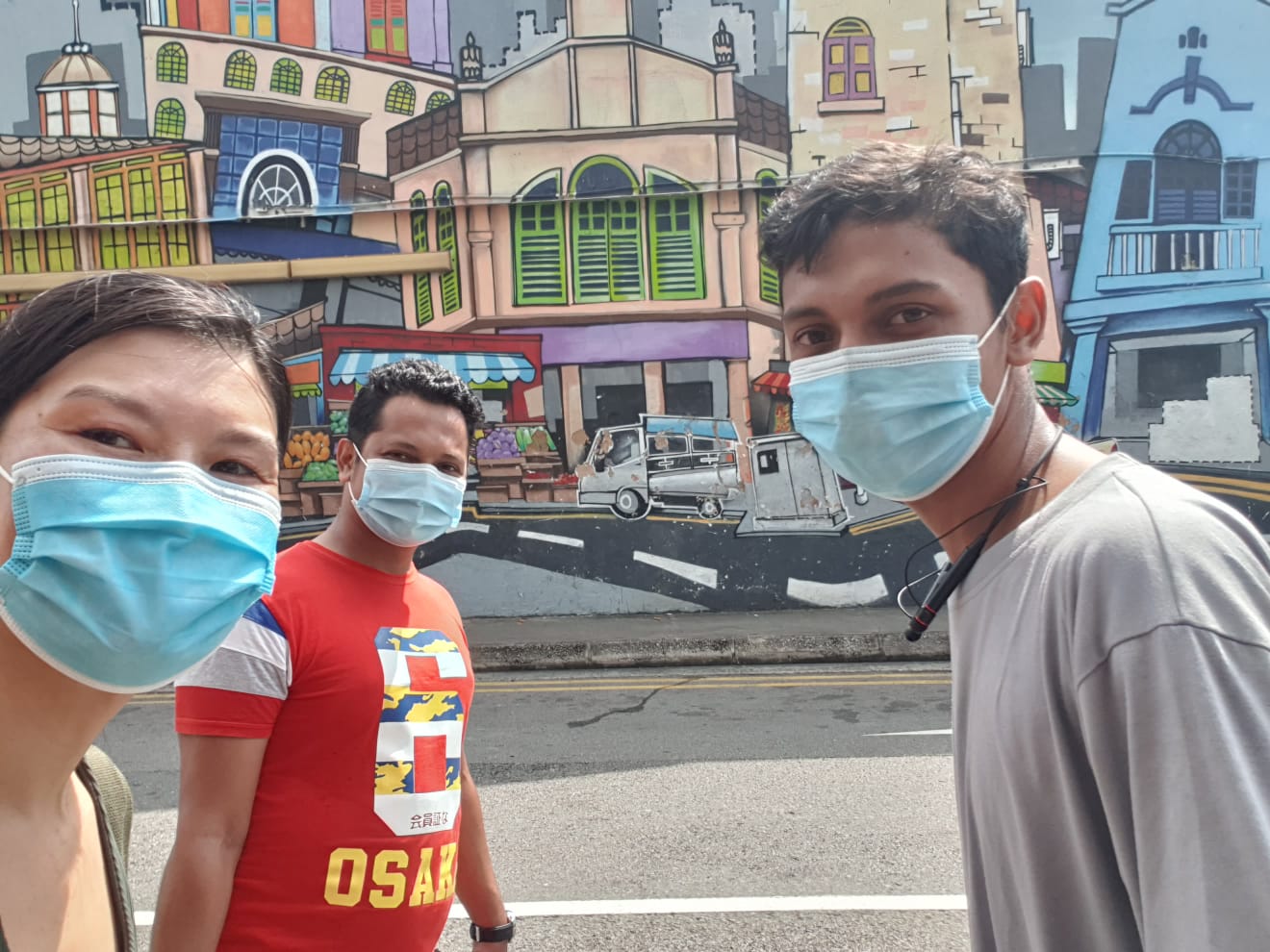
Melissa with a migrant worker, S (right), who taught her how to cook briyani. Together, they prepared lunch for S’s co-workers, who were involved in renovation works at her home. They happened to meet S’s brother (centre) at Little Bangladesh, while marketing. Photo courtesy of Melissa Kwee.
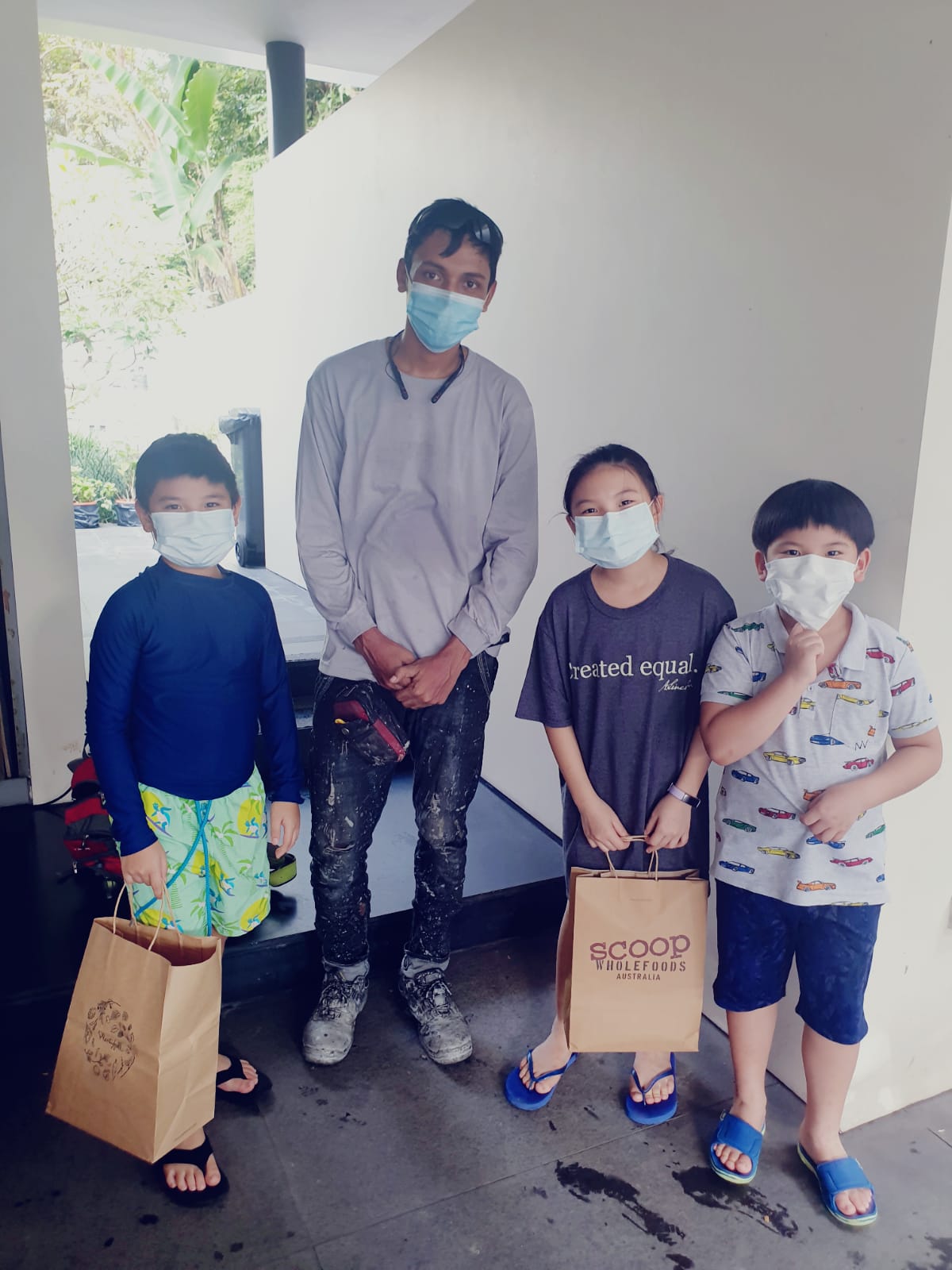
Melissa’s niece and nephews joined her in distributing care packs with masks and sanitisers to migrant workers. This was part of a groundup initiative organised by MasksForAllSG. Photo courtesy of Melissa Kwee.
Seeing what was revealed and what could not be “un-seen,” she started to reflect and took personal responsibility for how she could have contributed to a more positive outcome.
2. Repentance: We are part of the problem and solution
Reflecting on the outbreak in the dorms also led Melissa to personal repentance in areas that she felt she could have done better. It also hit her that all of us are part of the problem – but also part of the solution.
“With a sense of agency, we can begin to reimagine. What does the better future look like?”
“We realised that we could have actually done something about it,” she said.
This moved her to assume responsibility to take action and problem-solve, which in turn energised her as she was filled with a sense of agency.
“With a sense of agency, we are not hopeless or helpless. We can begin to reimagine. What does the better future look like? What really needs to be changed? How can we create the future of the tomorrow that we want to see rather than just solve the problems of today?
“As leaders, our job is to remind people and ourselves that we do have the agency to make changes.”
3. Responsibility: Coming together to do good
Seeing the donations pour in to Giving.sg, Melissa’s team at NVPC partnered with volunteers, the National Council of Social Service and the Ministry of Culture, Community and Youth to start to work on a donations-in-kind dashboard. It is a matching system for charities to submit requests for resources and for donors to fulfil them. It seeks to channel resources, especially from Company of Good, to where it was most needed.

A poster done by Melissa in collaboration with Food Bank Singapore, requesting for donations for dates during Ramadan, 2020. Through the generosity of friends and strangers, they managed to secure 1,025kg of dates to distribute to migrant workers.
(Launched in 2016 by NVPC, the Company of Good programme connects organisations to do good strategically, sustainably and impactfully. Company of Good is part of the larger NVPC vision — City of Good — where individuals, organisations and leaders come together to give their best for others. This also means moving away from a “me-first” mindset and being other-centred.)
Working tirelessly, the team set up the online dashboard in two-and-a-half days.
“When each of us gives what we have, none are in need,” said Melissa quoting Dylan Wilk, the young, self-made English millionaire who started Gawad Kalinga Community Development Foundation, a Philippine-based poverty alleviation and nation-building movement. Wilk had spoken at NVPC’s Giving Matters Forum in 2018.
Regarding coming together, sharing resources and giving to those in need, Melissa also references the early church in the Book of Acts. In it, members of the community shared their possessions so that there were no needy persons among them.
4. Reimagination: What is the better future?
Creating a better future relies upon – but must also go beyond – an individual’s effort.
“The City of Good is where people, leaders and organisations come together.
“We got them to see all the different parts of the elephant that we never saw before.”
“We don’t do it by ourselves. We give our best efforts, talent or skills. Not for ourselves but for others,” said Melissa.
Bringing people together was just what she did.
NVPC gathered about 90 stakeholders – including dormitory operators, employers, regulators, non-governmental organisations, policymakers and advocacy groups – to analyse the issues surrounding migrant workers and reimagine innovative solutions to tackle the issues at hand.
They called these sessions Migrant Workers Colabs. Colabs stands for “collaboration laboratory”.
“We got them to see all the different parts of the elephant that we never saw before, because we all can be very fixated on our own part and miss the bigger connected picture,” said Melissa. She was referencing the old tale of several blind men touching just one part of an elephant. Each man thinks the elephant is something else because they cannot piece together the whole picture.

“We got them to see all the different parts of the elephant that we never saw before, because we all can be very fixated on our own part and miss the bigger connected picture,” said Melissa, on the Migrant Workers Colabs by NVPC. Screenshot of a meeting.
An initiative birthed through Colabs was Adopt-A-Dorm Community.
NVPC invited companies, schools and churches to adopt a dormitory.
The adopter’s role is to find ways to help the migrant workers stay well. For instance, by helping them connect with loved ones back home or by providing leisure activities.
Trust is crucial for change.
However, it was not very successful, admitted Melissa. As Covid restrictions eased, adopters went back to work and it seemed like the issue had become less urgent.
But she believes that giving in a relational way is always more powerful (than merely giving cash) and changes both givers and receivers.
Effective collaboration builds an ethos and structure for trusted network leaders to lead together.
Trust is crucial for change, Melissa believes.
She shares a trust quotient she learned from one volunteer:
Trust = Credibility x Reliability x Relationship Intimacy / Self-interest
“The more self-interest you have, the less people will trust you. But the more interested you are in the well-being of others, the higher your trust quotient will be,” she explains.
“The more interested you are in the well-being of others, the higher your trust quotient will be.”
“Looking back at the decisions I’ve made, things I’ve done or not done, I ask myself if I’ve well balanced the interests of others and not just my own. We can easily and accidentally erode trust.
“Asking for feedback is key too. And even though leaders don’t get a lot of it, we are blessed if we have truth-telling friends who keep us honest.”
Reflecting is important. As is the “So what?” says Melissa.
“What commitment can I – or we collectively – make to those we are concerned about? Because that’s what ultimately motivates us the most, to be better after Covid.”
And that is where the last R which stands for Reset comes in.
5. Reset: What are you called to do?
As we reflect upon the pandemic, Melissa poses some guiding questions to help us come to discern what we are called to do:
1. What wider need is speaking to me?
2. What gift is being called forth from me?
3. What is one action I can take in response?
“What we do in the next two years will determine the trajectory for the next ten years,” she says.
“It is important that we find ourselves in that place where we can be refreshed again and shore up our strength so that we can create the new day that we want to see. I believe we have seen glimpses of it, but now we need to make it real.”
This is the fifth article in a series of Leadership Conversations by St Luke’s Hospital (SLH) and is republished in a collaboration between SLH and Salt&Light.
Check back soon for perspectives from other leaders who were invited to inspire SLH staff in their personal and professional development.
MORE STORIES IN THE SERIES:
Home away from Home: Churches and charities express God’s love to stranded Malaysian workers
Running 200km in 45 hours: Hospice president Dr Tan Poh Kiang says, it is “God’s path for me”
We are an independent, non-profit organisation that relies on the generosity of our readers, such as yourself, to continue serving the kingdom. Every dollar donated goes directly back into our editorial coverage.
Would you consider partnering with us in our kingdom work by supporting us financially, either as a one-off donation, or a recurring pledge?
Support Salt&Light